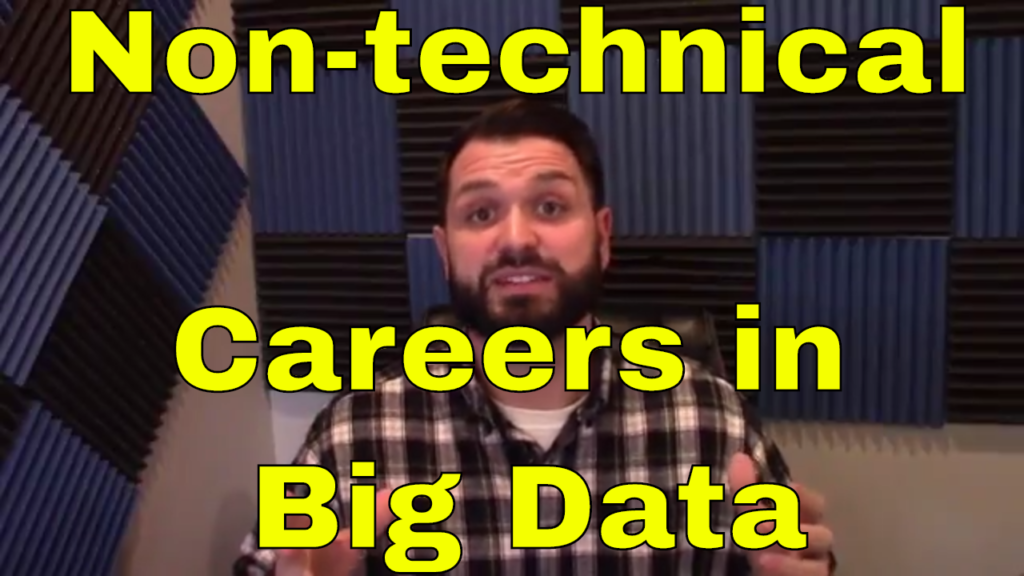How Important Is Public Speaking For Data Engineers?
Brand new question on Big Data Big Questions is around public speaking in Data Engineering. I’ve often heard that public speaking is the universal number 1 fear for most people. So many people choose to avoid it for various reasons. While no where will you see public speaking called out in Data Engineering descriptions, I believe it’s a skill that worth investing in. Find out my thoughts on Speaking Skills for Data Engineers in the video below.
Transcript – Speaking Skills For Data Engineers
Hi folks! Thomas Henson here with thomashenson.com. Today is another episode of Big Data Big Questions. Today’s question comes in from a user. If you have a question, find me on Twitter or put it in the comment section here below. Send me an email. There’s a ton of different ways to get in touch and have your question answered on the next episode of Big Data Big Questions.
Today’s comes in from Bobby, and it says, “Can you let me know which career path is better between data scientist or data engineers, which we’ve talked about, but this one is for a person suffering with anxiety or difficulty giving presentations?” So, thank you for your question, Bobby, and I totally understand where you’re coming from as far as having challenges that you’re trying to deal with. Trying to pick out a career path, like, we want to play to things that we’re going to be successful at and things that we’re going to be able to excel in. You’re looking for that career path. I’ll say just right off the bat, a couple things stuck out to me about it. I’m going to get to those as we talk about why I think presentations and stepping outside your comfort level are some options for you. Let’s answer your question first, before we dive into Thomas’s thoughts on some of that.
Depending on which was you want to go, it’s not going to matter. It’s going to be more about if you’re more technical as far as wanting to be code, and hands-on, and building out clusters. Maybe starting to play with Kubernetes, Linux, those types of systems. Then, being on the data engineer side, it’s going to be a good way to go, or if you’re more math-based and want to get into the specifics of, hey, some of these features or some of these pieces of data may be able to give us better insight into what we’re trying to solve, then the data science path is going to be there. Don’t let your anxiety or your difficulty giving presentations say that, “I must go data engineer,” or must go data science, because I think they’re both equal to give you the opportunity to not have to present and not have to have as much interaction as you would maybe in a different role where it’s more customer-facing and job-driven.
My thought process about how much you’re going to have to deal with in that situation is, I’ve worked with people who never had to present. When we were in that role, that just wasn’t their thing. They may be at the meetings. They’ll be at the meetings, but they’re not the point person. Maybe get a one-off question or something like that, but most of that’s in the confines of their team. You’re still going to have team interaction, but there’s still a ton of downtime where it’s like, “Hey, headphones on,” just banging out your own code, or doing your deployments, and stuff like that. There’s not a ton of interaction there. You may have some user interaction that you’re working through, depending on where you are in the stage of your project, but for the most part, I don’t think even outside of the questions here, most of your customer interactions, a lot of times, maybe not so much on the data science side, but it’s going to be nothing like you would think from a web development perspective or front end developer. Still engaging with the users, but more on the team atmosphere. Feel free to choose any of those paths to be able to deal with your anxiety and difficulty giving those presentations. I think you’ll be totally fine, and I think you can get away with never having to give a presentation, if that’s in your vote.
But, I think you should. I think you should try to work towards conquering those difficulties and those presentations, and I’m not saying that you start off going out, and being like, “You know what? I’m going to try to go to a conference and give a keynote.” I’m going to try to go to a conference and give a breakout session. That’s not what I’m saying. I think you should start a little bit smaller, and just on your team, and then if you find a new feature or new software tool, or just a new process that you like doing, present that to your team. I know it’s tough, and I know it’s hard, because they even did a study a while back about the number one fear most people said that they fear public speaking more than they fear death.
Let me say that again. They feared death less than they feared public speaking. Most people would rather die than do public speaking. Definitely it’s something that I’ve been working on for quite a few years, and I’ll be honest, I get nervous each time. I get nervous, start talking to people. I’m like, “Oh, I’m about to go on.” It doesn’t matter. It doesn’t matter to the fact that, maybe I’ve given a certain presentation 25 times.
Heck, every time I turn the camera on, and there’s nobody in this room, here, on Big Data Big Questions, I still get nervous, too. There’s going to be some amount of nervousness, and I understand that, there’s varying levels, too. I’m not looking over and saying that, “Hey, you know, everybody, you know, everybody can be able to do that.” I do think that you can work towards it, and so maybe everybody’s not going to be able to do it on the same is maybe what I mean to say. I think it’s something you should try to, because presenting is going to open up doors for your career. It’s going to make you feel good, too. Each time I talked about how nervous I was, I just spoke in front of over 1,000 people for the first time in my life. That was huge, but I didn’t start out that way all in one day. I’ll tell you, I was super nervous, and it was just for a short amount of time, but I was nervous the whole time leading up to it, and then afterwards, after you get it, it’s like, yes! You get that amazing feeling that you’ve done something. I don’t know if you’re into sports or something like that, but you feel like you’ve won. Even though, who knows, it’s the first time speaking to that many people. I’ll probably hopefully have that opportunity again, and I’ll be better at it next time. It probably wasn’t my best time, if you’re looking at it.
It’s something that you start to work towards. It’ll be interesting, how much networking, and how many doors are open by doing that, and it’s all about giving back to the community as well. To recap, I don’t think that you have to choose data science or choose data engineer to be able to not have to present and do some of the other things. However, I think most people, and if you’re watching this channel, and you’re really curious about career development, I do think that everybody should have some kind of presentation skills, and this is something they should practice towards, and I totally understand. There’s a lot of anxiety whenever you’re doing something like that. If it’s something that you can work towards, and you can conquer, then I think it’s going to be something that’s going to be amazing. One, for the community, because we need more voices. And then two, it’s going to be something that you’re going to be proud of, and you’re going to be able to work on, and it’s just another challenge, too.
That’s all I have today for Big Data Big Questions. Make sure that you hit the subscribe and ring that bell, so you never miss another episode of [Whispers] Big Data Big Questions.

